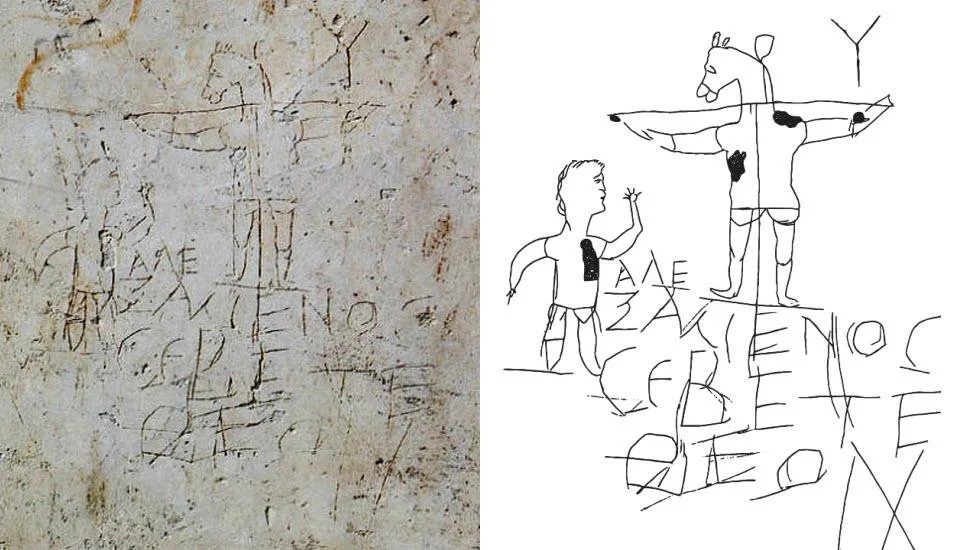The Invitation of the Empty Tomb
Did Jesus really rise from the dead?
It’s not an understatement to say that Christianity hinges on the truth of the resurrection.
Paul put it this way in 1 Corinthians 15:17-19, “If Christ has not been raised, your faith is futile and you are still in your sins. Then those also who have fallen asleep in Christ have perished. If in Christ we have hope in this life only, we are of all people most to be pitied.”
No forgiveness. No hope. Of all people to be pitied.
But if it’s true…that changes everything.
We recognize that to believe the claims of the resurrection of Jesus Christ in our culture is often viewed as ignorant or unenlightened. However, our faith is reasonable. We often feel scared to talk about our faith in secular places with our non-Christian friends because we are afraid we will be backed into a corner debating or defending our beliefs. However, we want to equip you to love God with your heart, soul, mind and strength (Deut 6) and be confident in your hope.
During the sermon on Easter Sunday, Pastor Michael Guyer helped to show the arguments we may encounter as we discuss Christ's deity, death, and resurrection. To serve you, we have written out these arguments for you to read, save, and return to as you need strengthening.
As always, we are always happy to set up a time to talk or refer resources that may help you grow in confidence in your faith. Christianity doesn’t require you to check your brain at the door. God is a God of reason (and we also know that He is a God of faith too).
The reasonableness of the death and resurrection of Jesus Christ
The death and resurrection of Jesus Christ is not a fable— a fictional story aimed to teach a moral lesson. These are historical claims that change everything else for all of history. They are historical claims either to be believed or rejected.
Both the biblical and secular sources confirm two things about Jesus:
Jesus really died.
Three days later, Jesus’ tomb was really empty.
We have to wrestle with these two facts. Then, we have to ask ourselves, why do they matter to us today?
Jesus really died
This first fact shouldn’t be brushed over. All four Gospel accounts confirm this point (Matt 27:45-50; Mark 15:33-39; Luke 23:46; John 19:30-37). In Mark 15:42-47, Jesus’ death is confirmed by Pontius Pilate after Joseph of Arimathea requests the body of Jesus.
Pilate was surprised to hear that he should have already died. And summoning the centurion, he asked him whether he was already dead. And when he learned from the centurion that he was dead, he granted the corpse to Joseph.
-Mark 15:44-45
In the words of Miracle Max from Princess Bride, Jesus was not “mostly dead.” He was “all dead.”
However, the testimony of the death of Jesus is not merely confined to the biblical accounts. It can also be found in Roman and Jewish sources:
Nero fastened the guilt ... on a class hated for their abominations, called Christians by the populace. Christus, from whom the name had its origin, suffered the extreme penalty during the reign of Tiberius at the hands of ... Pontius Pilatus, and a most mischievous superstition, thus checked for the moment, again broke out not only in Judaea, the first source of the evil, but even in Rome. - Tacitus (Annals, 15.44)
About this time there lived Jesus, a wise man, if indeed one ought to call him a man. For he ... wrought surprising feats.... He was the Christ. When Pilate ...condemned him to be crucified, those who had . . . come to love him did not give up their affection for him. On the third day he appeared ... restored to life.... And the tribe of Christians ... has ... not disappeared. - Josephus (Antiquities 18.63-64)
On the eve of the Passover Yeshu was hanged. For forty days before the execution took place, a herald ... cried, "He is going forth to be stoned because he has practiced sorcery and enticed Israel to apostasy. - Babylonian Talmud
The Christians ... worship a man to this day – the distinguished personage who introduced their novel rites, and was crucified on that account.... [It] was impressed on them by their original lawgiver that they are all brothers, from the moment they are converted, deny the gods of Greece, and worship the crucified sage, and live after his laws. - Lucian (“The Death of Peregrine,” 11-13).
2nd Century Roman Graffiti - “Alexamenos worships [his] god.”
After Jesus died, he was laid where dead people are laid—in a tomb.
He really, fully died.
Jesus’ tomb was really empty
All four Gospel accounts record that Jesus’ body was laid in a tomb belonging to Joseph of Arimethea (Matt 27:59-60; Mark 15:46; Luke 23:50-53; John 19:38-42). Not only do we know this tomb belonged to Joseph, we also know that it wasn’t far from where Jesus was crucified (John 19:42), and its location was known to a number of Jesus’ female disciples (Matt 27:61; Mark 15:47; Luke 23:55) along with the Jewish leaders and Pontius Pilate (Matt 27:62-66).
Early on Sunday morning, Mary Magdalene, Mary the mother of James, and Salome, went to the tomb expecting to anoint the dead body of Jesus but found an empty tomb.
And they found the stone rolled away from the tomb, but when they went in they did not find the body of the Lord Jesus.— Luke 24:2-3
He wad dead on Friday. The tomb was empty on Sunday morning. What’s the explanation?
The Invitation of the Empty Tomb
The empty tomb is not enough evidence alone to prove the resurrection, but it does serve as an invitation to us to consider Jesus’ resurrection from the dead.
The angel explains the meaning of the empty tomb and then invites the women to see for themselves. And he said to them, “Do not be alarmed. You seek Jesus of Nazareth, who was crucified. He has risen; he is not here. See the place where they laid him. (Mark 16:6) The explanation that angel gives is simple and profound. The tomb is empty because Jesus is risen from the dead just as he said he would (Mark 8:31; 9:30-31; 10:33-34)
Don’t take my word for it though, see for yourself! You see, the resurrection isn’t a mystical notion or spiritual idea to ponder, it is a historical claim to be either believed or rejected.
Before you believe or reject the resurrection, it is worth considering the alternative explanations for the empty tomb:
The disciples took Jesus’ body – The Bible actually tells us this was a rumor spread by the Jewish leaders and existed even during the time when Matthew wrote his gospel account (Matthew 28:11–15).
This seems unlikely as we are told the Eleven were all hiding afraid they themselves were going to be killed. If this were the case, why would the risk confronting the Roman soldiers and trying to steal Jesus’ body. Making it even more unlikely, why would they steal Jesus’ dead body, and then all go on to lay down their life for proclaiming Jesus’ death and resurrection.
The Romans took Jesus’ body - If you are looking for someone who had the power and ability to do it, the Romans would certainly be number one on the list.
While they may have been able to easily take Jesus’ body, it seems very unlikely. If they had Jesus’ body, it seems like they would have eventually used it to undercut the whole Christian movement. Instead, they found Christianity transforming Roman society, even as they tried to kill those who professed faith in Christ.
The disciples went to the wrong tomb - The known location of the tomb by the female disciples, Joseph of Arimethea, the Jewish leaders, and Pontius Pilate makes this unlikely from the start.
Jesus didn’t die but escaped - Some have suggested the “swoon theory” best explains the empty tomb. It is claimed that Jesus wasn’t really dead, but had fallen into a deep coma from the severe pain of the crucifixion. In the coolness of the tomb, Jesus was revived and was able to leave the tomb on his own accord. This goes against not only what the Bible presents but what both Roman and Jewish historical sources report.
Besides the overwhelming evidence that Jesus really did die, this theory assumes Jesus could lose massive amounts of blood, not eat for over 40 hours, unwrap himself from his burial clothes, have the strength to roll away the stone and get past the Roman guards, and then appear to his disciples as victorious over the grave.
Either:
He didn’t really die,
Somebody took his dead body,
Or he rose from the dead as he said he would.
The invitation of the empty tomb is to consider the resurrection for yourself.
Did Jesus really rise from the dead? What do you believe?


